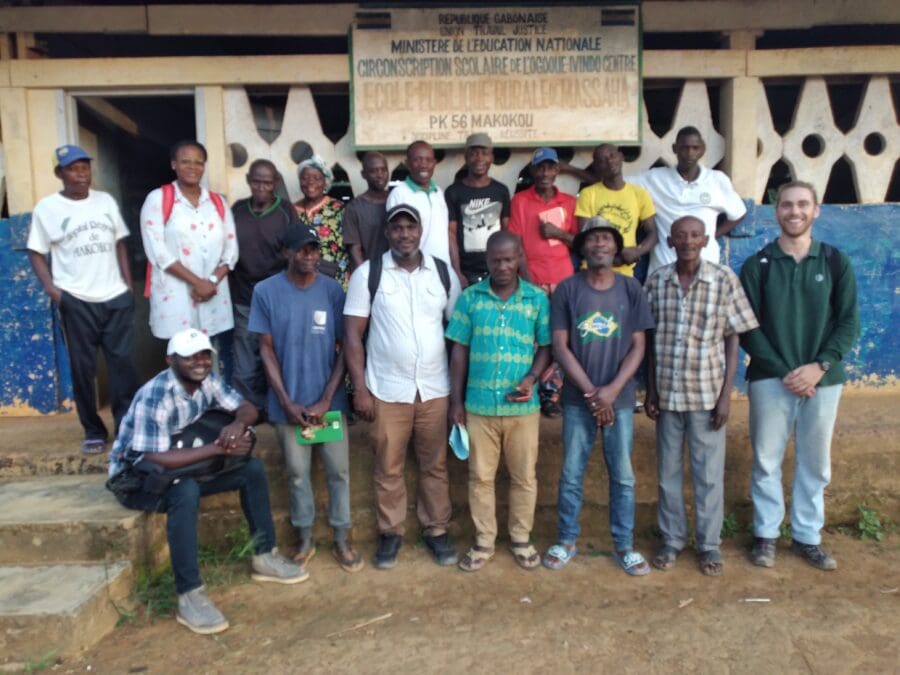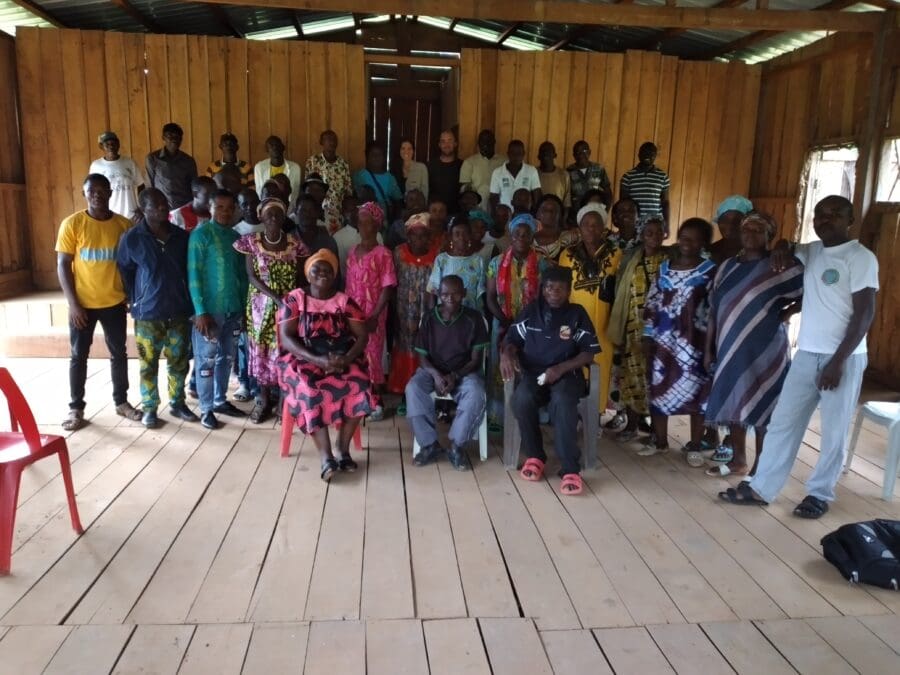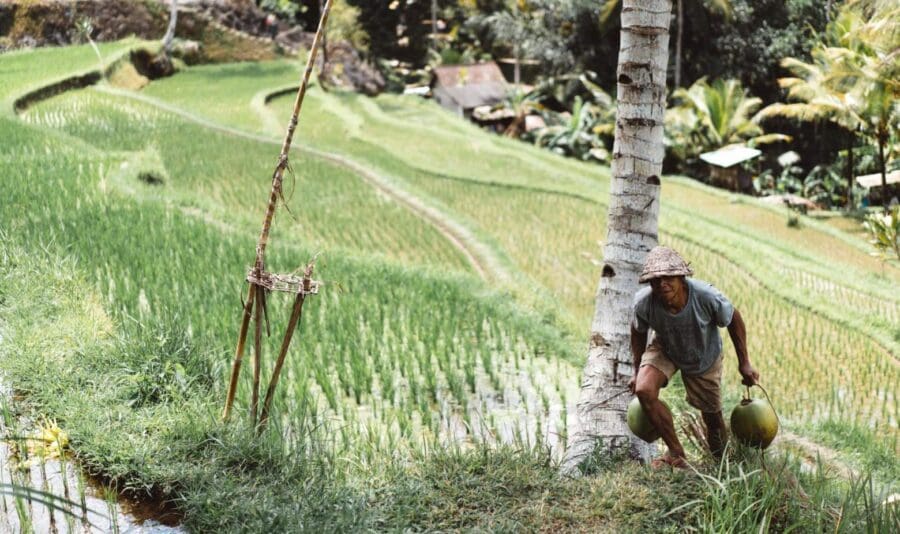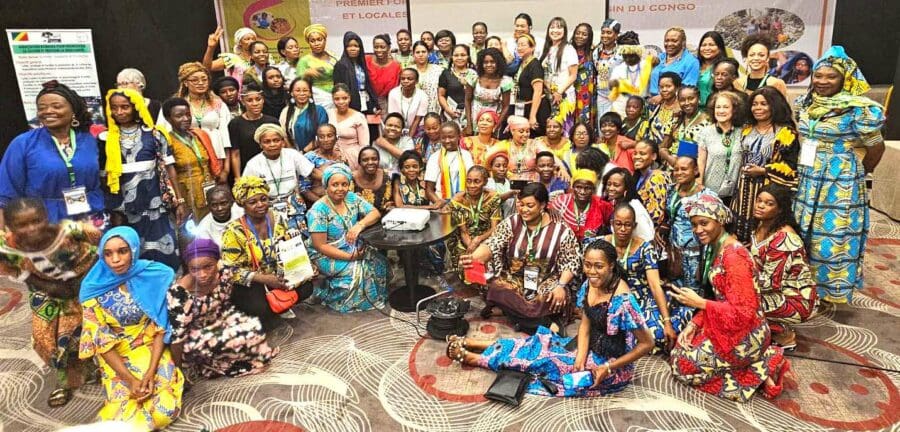This blog is a snapshot of longer brief published at CoP29 in Baku, Azerbaijan. You can read the full brief by clicking here.
The Rights and Resources Initiative (RRI) and Rainforest Foundation Norway (RFN) collaborated to develop the Path to Scale Funding Dashboard, the first public database profiling historical donor support for Indigenous Peoples’ (IP), Afro-descendant Peoples’ (ADP), and local communities’ (LC) tenure and forest guardianship. The Dashboard was launched alongside the State of Funding report in April 2024 and contributes to the goals of donor, civil society, and rightsholder participants in the Path to Scale Initiative to support the recognition of an additional 400 million hectares of tropical forests for communities, and to mobilize at least $10 billion by 2030 for the sector.
This blog post, building on the State of Funding report, provides updates on finance for IP, LC, and ADP tenure and forest guardianship and examples of how Pledge-linked or adjacent grants and funding are already driving important progress in tropical forests and other key ecosystems.
Updates to the Path to Scale Funding Dashboard
As part of our ongoing monitoring efforts, we conducted a mid-year update and revised our preliminary 2023 figures upward by 6 percent. With revisions in reporting by some donors, these adjustments establish a revised annual average of $565 million from 2020 to 2023. As of mid-2024, donors have reported that relevant funding is estimated at $379 million. While these numbers are preliminary due to donor reporting lags, key initiatives with first disbursements in 2024 include:
- Support for local communities in the Lake Chad region;
- Funding for land titling and rural reform in Colombia’s peace policy; and
- The Amazon Fund’s backing of COIAB-led Indigenous territorial management in the Brazilian Amazon under PNGATI.
Assuming current trends continue through the remainder of 2024, we anticipate a similar geographic distribution of funding as in 2023, with an estimated 37 percent allocated to Africa, 34 percent to Latin America, and 28 percent to Asia.
Although the overall increase in funding since the IPLC Forest Tenure Pledge in 2021 is a positive shift from historical levels, it remains well below the estimated resources needed for IPs, LCs, and ADPs to help secure 2030 climate and biodiversity goals. In 2020, the Path to Scale projected that at least $10 billion in new funding for the recognition of collective tenure rights and forest guardianship would be required by the end of the decade—approximately $5 billion more than current trends suggest will be committed and disbursed.
Results from the IPLC Forest Tenure Pledge funding
While more resources are essential, the funding mobilized since the IPLC Forest Tenure Pledge has already delivered notable results. Donor support for community tenure rights since CoP26 has—beyond advancing immediate outcomes like land area recognized for communities—strengthened the ecosystems and enabled conditions for the recognition of community tenure and local forest conservation.
For example, donors have invested in the capacity of community-based organizations, catalyzed new coordination among community networks, improved financial systems to ensure local organizations can directly manage grant funding, and helped to establish other critical foundations for expanding funding pipelines and scaling up impactful programs.
The case studies below illustrate the broader positive structural impacts of such funding and highlight pathways for achieving ambitious tenure and guardianship goals. Although these cases spotlight specific initiatives to which RRI contributed, we are far from the only organization that has been involved in supporting IP, LC, and ADP rightsholders in these efforts. All of these projects represent the collective work of numerous organizations at the international and local levels.
Partnership for People, Nature, and Climate
RRI, the Global Alliance of Territorial Communities, and Campaign for Nature worked together to establish the Partnership for People, Nature, and Climate to advance community climate and conservation goals in the Congo Basin (Gabon, Republic of Congo, the DRC) and the Tropical Andes (Colombia, Peru, Ecuador, Bolivia).
The project established a scalable framework for channeling funding and technical assistance to local rightsholder organizations. The project kicked off in 2022, with planning meetings in Quito, Ecuador, and Kinshasa, DRC. IP, ADP, and LC leaders worked together to identify and prioritize the most strategic opportunities and landscapes to advance community rights and forest guardianship comprising millions of hectares of forests. The strategic convenings put into practice the value of local leadership in defining conservation priorities and creating a pathway to scale. Specific achievements include:
- Planning meetings engaged 208 leaders from 79 organizations to develop a project pipeline, leading to 30 pilot sub-grants for IP, LC, and ADP organizations focused on rights-based conservation and climate change mitigation.
- In the Tropical Andes, the planning meeting yielded a portfolio of ongoing projects aimed at securing the legal recognition of 7.75 million hectares and strengthening territorial governance over 100 million hectares.
- In the Congo Basin, the planning meeting yielded a portfolio of ongoing projects aimed at securing legal recognition of 3 million hectares and strengthening territorial governance over 70 million hectares.
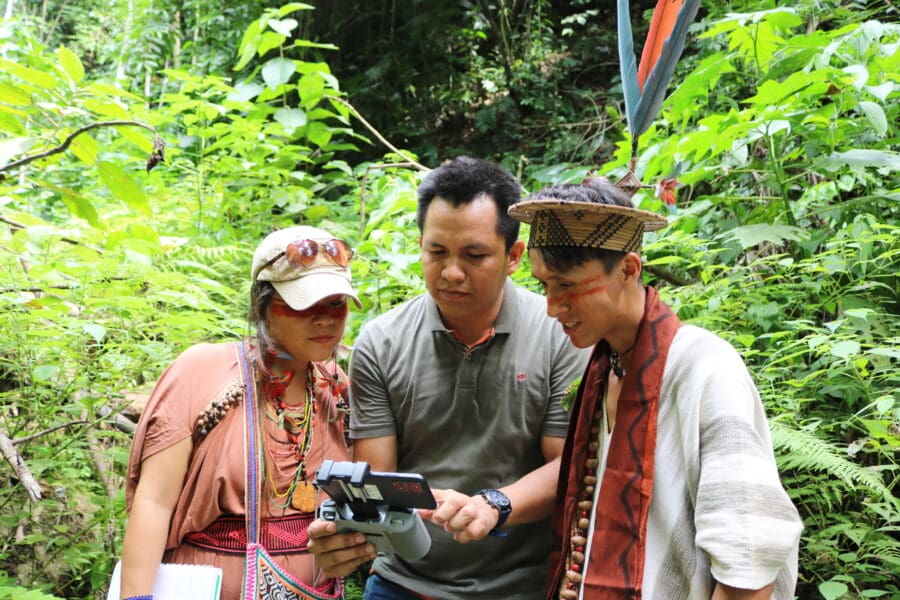
The First Forum of Indigenous and Local Community Women in Central Africa and the Congo Basin
IP and LC women play a key role in maintaining the Congo Basin’s ecosystems, contributing traditional knowledge and practices that support biodiversity conservation and climate resilience. But despite their contributions, community women often face socio-cultural vulnerability, exclusion from policy dialogues, and limited access to resources, among other challenges.
Supported by a pooled grant from multiple donors, the First Forum of Indigenous and Local Community Women in Central Africa and the Congo Basin aimed to strengthen and promote the engagement of IP and LC women in biodiversity conservation and climate resilience in Central Africa, and to establish a sustainable support mechanism for them. The Forum was a collaborative effort led by the Network of Indigenous and Local Populations for the Sustainable Management of Forest Ecosystems in Central Africa (REPALEAC) in partnership with RRI.
The forum marked a transformative step in amplifying IP and LC women’s leadership in environmental stewardship. Specific achievements include:
- The Brazzaville Declaration and Roadmap outline priority actions and the enabling conditions needed for IP and LC women to have a stronger voice in national and sub-national policy dialogues on land and resource rights.
- The forum enhanced the collaborative network of Indigenous and local community women from Central Africa, the Americas, and Asia, and fostered a global solidarity movement.
- Discussions on sustainable funding avenues laid the groundwork for establishing a regional fund dedicated to supporting IP and LC women’s projects.
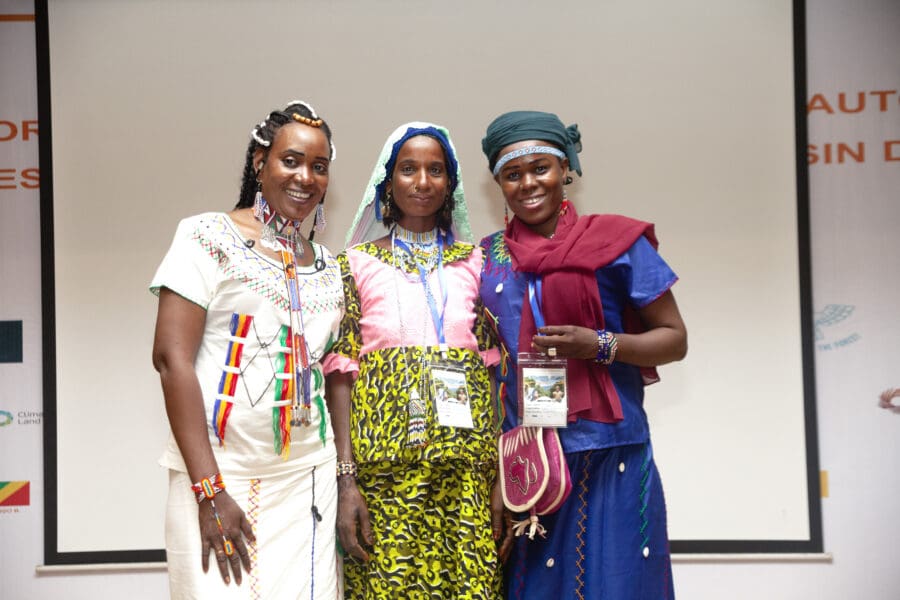
Securing pastoralists’ tenure in East Africa
Pastoralism, one of Africa’s oldest and most enduring land use practices, has been a cornerstone of sustainable livelihoods for over 10,000 years. There are an estimated 268 million pastoralists in Africa who inhabit approximately 43 percent of the continent’s total land mass. Pastoralism, with its migratory nature and reliance on collectively owned lands, enables seasonal livestock movement and supports the natural regeneration of the environment. This approach has allowed pastoralist communities to sustain resilient resource management practices and contribute to biodiversity hotspots that support some of East Africa’s most iconic wildlife.
This project reinforces pastoralists’ tenure rights and governance as essential for conservation and climate mitigation, emphasizing rangelands managed by pastoralists as critical ecosystems in global conservation discourse. The official launch meeting, organized by RRI and the Indigenous Livelihoods Enhancement Partners (ILEPA) in 2023 via CLARIFI, brought together leading pastoralist networks from Kenya, Tanzania, and Uganda to define the project’s strategy and identify and prioritize opportunities from the grassroots. Specific achievements include:
- Partners unified their focus and long-term vision of securing pastoralists’ tenure and sustainable livelihoods and shared insights on challenges, like land rights for pastoralist women and youth, and developed country-specific strategies.
- Partners developed both short- and long-term action plans responsive to each legal and policy landscape. They also mapped stakeholders in each country and identified key allies.


